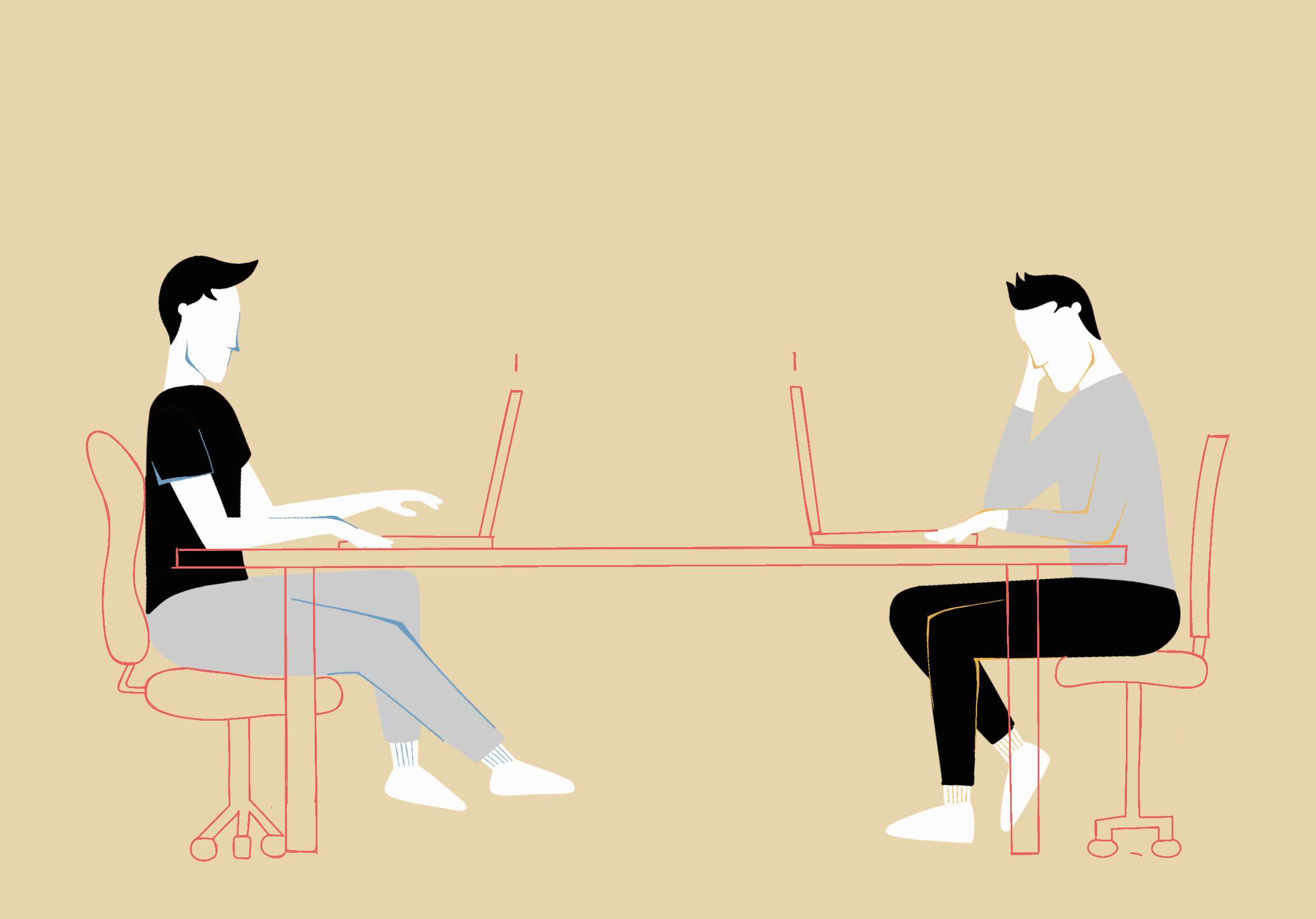Concordia’s new online system glosses over student needs
Concordia is asking students to invest in a community which has largely abandoned lofty goals of equitable access, in favour of a new remote model which fails to meet student needs.
When the pandemic began, I didn’t have a lot of time on my hands, and I certainly didn’t have a lot of resources to manage my mental health. I was working part-time as a barista near campus, attending school full-time, and struggling to balance a relationship and extracurriculars on top of it all. I honestly hadn’t heard about COVID-19 until it came up in a class discussion about whether we would be transitioning to online classes. To say it was a wake-up call is an understatement.
In the months that followed, I would lose my barista job, end my relationship, my internship would be cancelled, and plans for a summer directed study with my favourite professor would disappear with the melting snow. My life, previously entirely defined by school, my work, and my relationships with my peers and mentors, has completely changed; and I’m not the only one. COVID-19 has had far reaching impacts on every aspect of life, including the mental health of staff and students alike.
Concordia has made a lot of promises since the pandemic hit, jumping into action with a public relations response that has left many feeling disappointed with the reality of online classes as the fall semester begins. Access has become a positive buzzword that many universities have been utilizing to frame this transition to digital learning — but what is access, really?
Access can be understood as the absence of barriers; it is active in its commitment to enabling success through resolving conflicts with diverse strategies. What does access look like in an academic institution? This is a question universities have been struggling to address since long before the pandemic began.
Concordia has always had issues with creating access. Concordia’s Access Centre for Students with Disabilities (ACSD) is designed to aid this problem, but there are barriers to the average student’s ability to become registered with the centre. The ACSD requires official documentation for medical conditions, mental health conditions, attention deficit disorder, and learning disabilities. Many Concordia students come from outside of the province or country, and do not have access to their family doctor. Students are encouraged to use Health Services, but wait times create barriers to getting the assistance and support they need. In an emergency, students can pay out of pocket to visit a local doctor, but that creates an additional financial barrier to getting the support needed.
I am lucky to have had a diagnosis for my mental illnesses before coming to Concordia, and registering with the ACSD was relatively easy. The ACSD guarantees a certain level of support and protection, but the process of registering, on top of struggling with school work and the additional stress of being in crisis can create additional inhibitors to success. While the university continues to pilot programs intended to support students, they do not have the capacity to support the sheer number of students that require assistance. I fear for the possibility of how students will be impacted by this lack of mental health resources, and the ways in which remote learning will absolve Concordia’s responsibility to student’s mental health.
Administrative response to the rising pressure to reduce tuition fees and address issues of fiscal access was the introduction of Concordia’s COVID-19 Student Emergency Relief Fund. Concordia invested $1 million to create this fund, though, given the university had 46,000 students in the 2019-2020 annual year, this would be equivalent to roughly $21.74 per student. The school is encouraging donations from the community to support this fund, while the university president receives a salary equivalent to the Prime Minister of Canada.
The official administrative response to general inquiry into the preservation of regular tuition fees is that remote courses are being designed to “the highest possible pedagogical standards” and that students will have access to academic advising and one-on-one mentoring, resources which were available prior to COVID-19.
Remote access is theoretically liberating, but the reality of virtual learning is much more complex than what the university administration is addressing. How are students with inadequate access to wifi supposed to access course materials? How is Concordia supporting the many students who cannot afford rent and no longer have a designated learning space? What about parents struggling to manage the responsibilities of their own education while homeschooling their children? What is Concordia doing to incorporate these access needs into the university’s “high pedagogical standards?”
Myself, like a number of other students, considered not returning to school this year. I considered the possibility of taking time off from school, focusing on work, but unfortunately this is not a reality I can afford; I do not have a choice. Concordia is reliant on students like me to continue enrolling so that the school can pay its necessary fees and salaries. I’d be happy to continue contributing to supporting my community, if only I felt more valued rather than a resentful prisoner to the new order of things. It’s possible to have successful remote learning, but the plans put forward by Concordia do not warrant the claim of “accessibility” that the administration is purporting.
Graphic by Rose-Marie Dion @the.beta.lab




